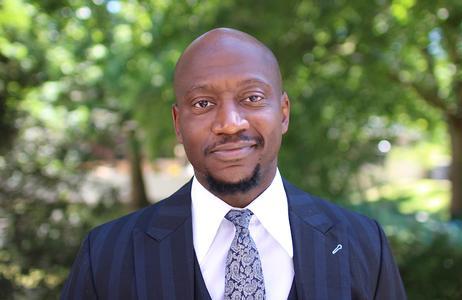Dr Tunde Okewale MBE

Tell us about your background and why you decided to become a barrister.
I grew up on a council estate in Hackney, and was the first member of my family to attend university. Whilst studying Law at London Metropolitan University, I was also holding down various part-time jobs to help support my household. As a result of this, my academic performance took a slump, and I got a 2.2 in my degree. I am unable to pinpoint a distinct moment in time where I decided to be become a barrister. But coming from a supportive and strict African household, I had four options; Doctor, Accountant, Lawyer or FAILURE.
Did you face any obstacles along your journey to becoming a barrister and how did you overcome them? Have any of them persisted since becoming a barrister?
Career advisers and numerous people in the profession told me that I would never be able to make it. My journey to the Bar was very difficult. It's a competitive global marketplace, which places an emphasis on excellent academic achievement. Moreover, it was evident to me from early on that my social and academic background was the polar opposite of the private school and Oxbridge-educated tradition of the Bar. One of my biggest issues was - and is - confidence. People from working class backgrounds have a confidence barrier - or, certainly I did. They don't think certain opportunities are for them so they eliminate themselves. I feel this stems from the soft bigotry of low expectations that stems from educational institutions even prior to university: you can go to a Russell Group university, but you haven't necessarily been to a secondary school that encourages you to change the world, so you're not going to have those aspirations unless you have a good support base at home to push you forward. I think that needs to be the focal point that starts at a much younger age in schools - people are in university or in jobs based on the paradigms they created when they were younger.
What opportunities, support and encouragement did you receive along your journey to becoming a barrister?
I was fortunate to receive a scholarship from a charity called From Boyhood to Manhood, which enabled me to pay for Bar school. I subsequently became a trustee and Director for the charity.
What is the most rewarding thing about being a barrister; has life at the Bar met your expectations?
I find the most rewarding aspect of the Bar is the advocacy, and the reality of it has met my expectations.
How do you use your experience of coming to the Bar from a non-traditional background to support those seeking to do the same, and/or why is it important for barristers to contribute in this way?
Knowing the importance of those initial steps is one of the reasons why I have been so keen to give back to the community that fostered me, nurturing a new generation from "non-traditional" backgrounds. I founded Urban Lawyers, a registered charity that works to make the law (in its academic, practical and career contexts) more accessible to marginalised groups in society. Urban Lawyers is currently run by a committee of young diverse legal professionals practising as barristers and solicitors in firms across the country. Our main passion is to provide inspiration and education to all who have or will come into contact with the legal profession. Through our work we allow students to discover the legal profession in a way they may not otherwise be able to. We are passionate about improving social mobility and diversity in a field that has been limited to a few, and many of the lawyers that volunteer their free time to run Urban Lawyers are themselves from backgrounds which are currently underrepresented.
To that end, I also sit on my Chambers' Equality and Diversity team working on outreach and am a patron of the Hackney Community Law Centre.
What are the challenges facing today's aspiring barristers, and how could they be addressed?
Unfortunately, many people from poorer communities do not have the same support from their families, teachers or wider community networks. This is made worse by the public institutions they engage with reinforcing the negative, self-limiting beliefs from home. For example, they may only be encouraged to pursue low-skilled and low-paid jobs. This habitually takes the shape of teachers discouraging children from pursing certain careers and creating self-limiting beliefs. This subtle discouragement often shapes beliefs and impacts the way they interact and perceive themselves in the world around them. Although the issues above are faced by poorer kids generally entering any high calibre profession, not just aspiring barristers. The specific challenges to those pursuing a career at the bar are lack of training places and lack of wide knowledge about the profession which leaves non-traditional students mystified.
What advice would you give someone from a non-traditional background, seeking to succeed at the Bar?
Put simply - "You can do it".